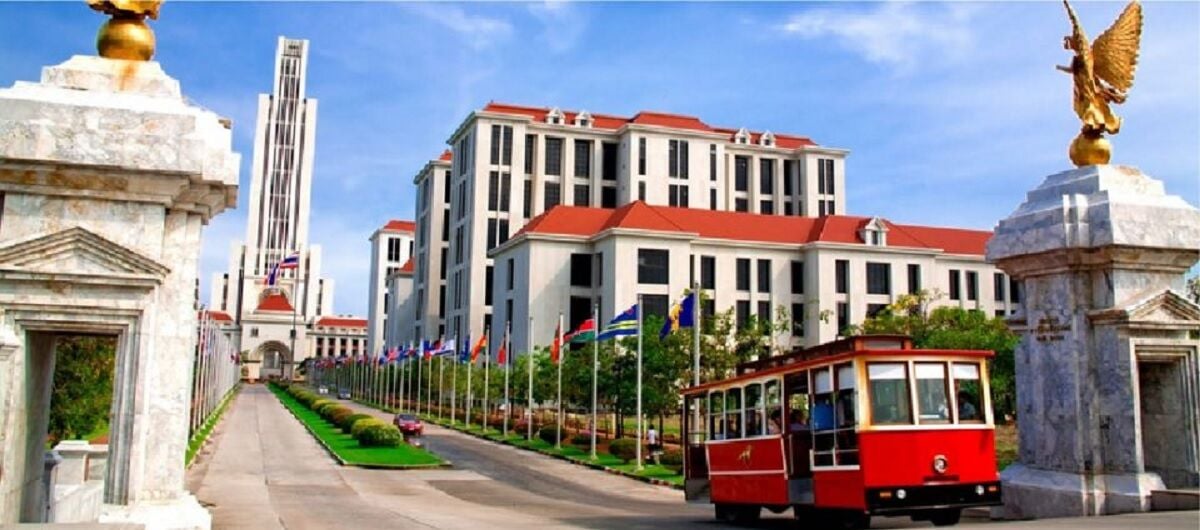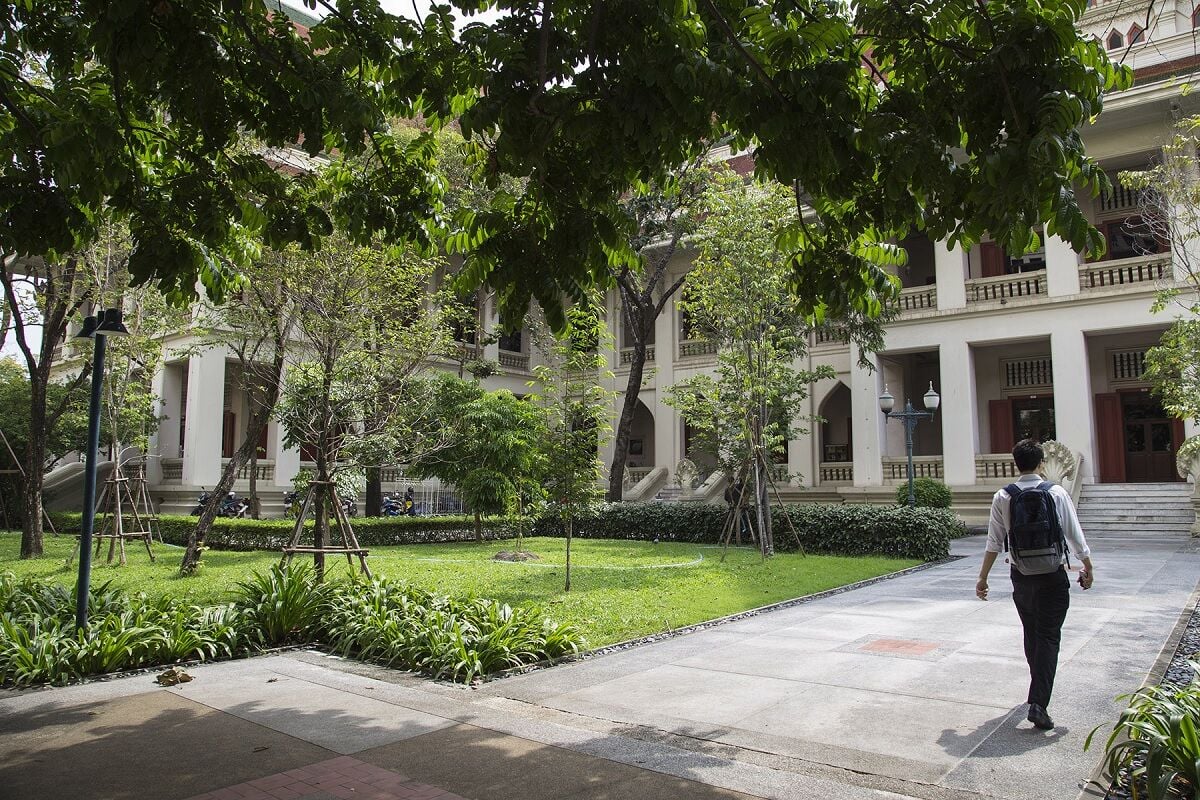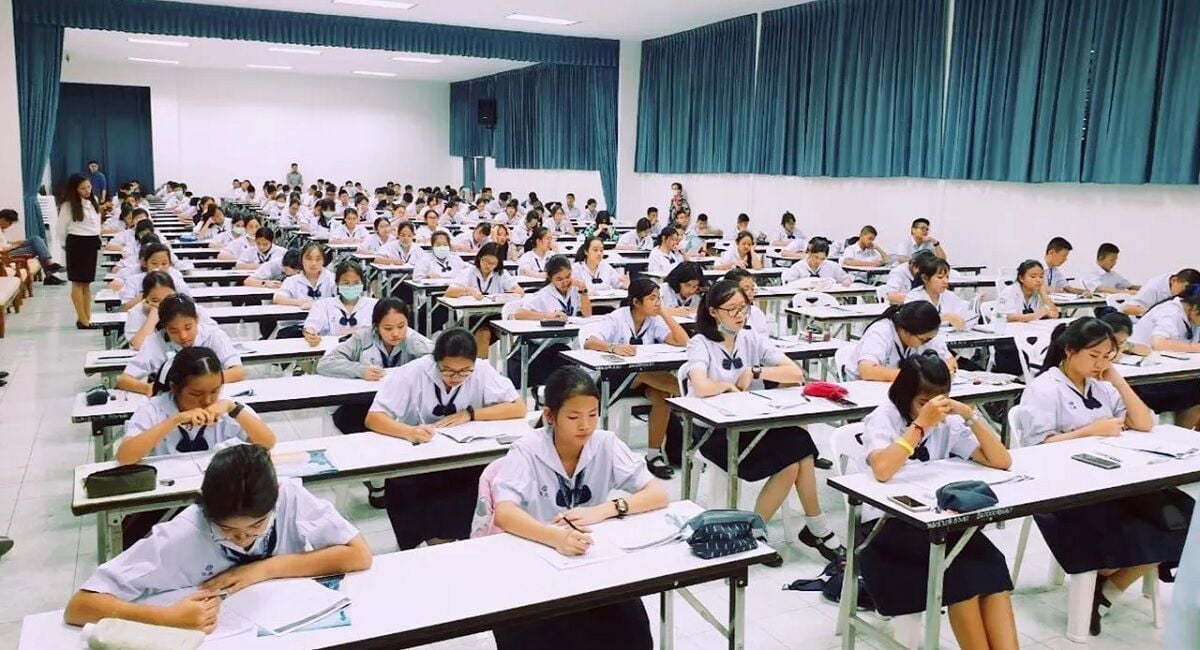A complete guide to higher education in Thailand

As the number of students looking for advanced learning opportunities continues to rise, the meaning of higher education has also begun to diversify. Across the globe, higher education generally implies studies pursued after secondary school, but the approach varies from country to country. Focusing on Thailand’s higher education system, it’s evident that it embodies a unique blend of tradition and modernisation. Incorporating universities, polytechnic colleges, and vocational and education institutions, the system is designed to cater to a wide array of academic pursuits.
Interestingly, the transformative aspect of Thailand’s higher education is evident not only in the classroom but also in its journals and forums. There is a robust exchange of research, experience, and insights between teachers, students, administrators, and experts. The dialogue fostered by publications like the leading international journal on higher education studies is important and contributes considerably to the system’s dynamics.
History of higher education in Thailand
of higher education in Thailand

20th Century
During the 20th century, the Thai education system saw a significant transformation. Universities in Thailand started to shift their focus from traditional academic studies to more industry-oriented programmes. The goal was to prepare students for real-world challenges and to bridge the gap between academic proficiency and industry needs. This paradigm shift was most noticeable in polytechnic colleges and vocational institutions.
Given the economic growth and industrialisation process experienced by Thailand, higher educational institutions identified the necessity to integrate practical skills in their curriculum. They recognised that the evolving work environment required a workforce that was not only theoretically knowledgeable but also practically competent. The shift also underscored the importance of continuous learning and adapting to new technologies and business practices.
21st century
Coming into the 21st century, the Thailand college system and universities continued this transformation, increasingly incorporating modern technological tools and online learning platforms into their teaching methods. This transition has proven to be crucial, especially in light of the recent global shift towards remote work and online education.
The high-speed internet connectivity and digital instruction methods have driven higher education institutions into a new era of e-learning. This new mode of education does not just provide academic knowledge but includes critical skills such as digital literacy, self-direction, self-discipline and remote collaboration.
Thailand’s higher education system now stands as a balanced blend of traditional academia and innovative learning methodologies, effectively catering to a broad spectrum of academic ambitions. The industry-specific skills and competencies acquired by the graduates of this system, while vital, are complemented by a wide range of soft skills that are indispensable in the contemporary workplace.
Structure of higher education
Thailand’s higher education system offers various study programmes designed to meet diverse academic interests and career goals. Below are the primary categories:
| Degree Level | Duration | Common Fields | Notable Universities |
|---|---|---|---|
| Undergraduate (Bachelor’s) | 4 years (longer for specialized fields like architecture and medicine) | Science, Humanities, Engineering, Business | Chulalongkorn University, Mahidol University |
| Postgraduate (Master’s) | 2 years | Various fields (e.g., Thai Studies, biomedical sciences, environmental research) | Thammasat University, Chiang Mai University |
| Postgraduate (Doctoral) | 3-5 years | Various fields | Thammasat University, Chiang Mai University |
| Professional | Varies (often includes internships) | Law, medicine, engineering | Asian Institute of Technology |
Types of higher education institutions

Public Universities
Public universities in Thailand offer a wide range of programmes and are known for their research facilities. These universities receive government funding and adhere to national educational standards. For example, Chulalongkorn University and Mahidol University rank highly in Asia.
Benefits of Public Universities in Thailand:
- Competitive Tuition Fees: Affordable education compared to private institutions.
- High Academic Standards: Rigorous curriculum and experienced faculty.
- Vibrant Campus Life: Engaging student activities and social experiences.
- Comprehensive Education: Research opportunities and global perspectives.
Private Universities
Private universities provide an alternative to public institutions. They offer diverse programmes and often have smaller class sizes. Tuition fees are usually higher than in public universities. Examples include Bangkok University and Siam University.
Benefits of Private Universities in Thailand:
- English-Language Programs: Suitable for international students.
- Flexible Admissions: High school diploma, English proficiency, and sometimes entrance exams.
- Affordable Tuition: Lower costs compared to Western institutions.
- Practical Skills and Industry Connections: Enhanced employability.
- Modern Environments and Flexible Courses: State-of-the-art facilities and diverse program options.
- Industry Engagement: Opportunities for internships and networking.
Rajabhat Universities
Rajabhat Universities focus on community development. They provide vocational training and undergraduate degrees. These institutions primarily serve local populations but also welcome international students. Even there are a lot of International schools too which offer a great education in Thailand from the beginning itself at primary and secondary levels.
Technical and Vocational Education Colleges (TVECs)
TVECs offer practical skills and training for specific industries. Courses include engineering, healthcare and information technology. These colleges cater to students looking to enter the workforce quickly. Examples include Pathum Thani Technical College and Bangkok Industrial and Community Education College.
International Programmes
Many Thai universities offer international programmes taught in English. These programmes attract students from around the world and cover various disciplines. They provide a global perspective while studying locally. Notable universities with international programmes include Thammasat University and Assumption University.
Benefits of International Universities in Thailand:
- Global Employment Opportunities: Graduates work in multinational corporations in Bangkok.
- International Networks: Access to global connections for career advancement.
- Diverse Academic Interests: Cater to a wide range of academic fields.
- Cultural Exchange: Promote interaction and understanding between different cultures.
- Global Career Preparation: Prepare students for international job markets.
- Attracts Global Students: Encourages cultural diversity and exchange.
- English-Taught Programs: Accessible to non-Thai speakers.
The right of access to higher education

Thailand’s Constitution guarantees the right to education for all. This includes higher education. Public universities play a significant role in this. These institutions receive government funding, making them more accessible to a broader range of students. Merit-based admission policies ensure fairness.
Moreover, there are scholarship programmes. They provide financial aid to deserving students. Examples include government scholarships and university-specific grants. These programmes aim to support students from diverse backgrounds, further enhancing access to higher education.
Private universities also contribute to the accessibility of higher education in Thailand. Though tuition fees may be higher, many offer scholarships and financial assistance. This helps students who may not meet public university entry requirements. Vocational schools provide another alternative. They focus on skill-based education, making higher education inclusive for different interests and career paths.
However, the right to access higher education within the Thailand college system doesn’t imply a one-size-fits-all scenario. They understand that different students have different potentials, goals, and learning appetites. With this understanding, Thailand has formulated a versatile higher education landscape that accommodates various academic aspirations.
Admission and application process
Admission and application processes for higher education in Thailand vary by institution. Generally, you must meet specific criteria and provide the required documents.
Eligibility criteria
Eligibility criteria differ among universities and programmes. Typically, you need a recognised secondary education qualification, such as A-level or equivalent. Check with your chosen institution for specific requirements.
Required documents
Prepare various documents for your application:
- Completed application form: University-specific.
- Academic transcripts: Certified copies from previous institutions.
- Passport: Valid and up-to-date copy.
- Passport-sized photos: Recent.
- Personal statement: Explain your motives and goals.
- Letters of recommendation: Usually from your teachers or employers.
- Proving English Proficiency
Most programmes taught in English require proof of proficiency. Common tests accepted include:
- IELTS: Minimum score requirements vary.
- TOEFL: Specified by the institution.
- CU-TEP: Conducted by Chulalongkorn University.
Check the university’s guidelines for score thresholds.
Application deadlines for different intakes
| Intake | Typical Application Period |
|---|---|
| January | August-October |
| May | January-March |
| September | April-July |
Student life in Thailand

Pursuing higher education in Thailand offers a vibrant and enriching student life. From diverse accommodation options to access to healthcare services, your experience will be both fulfilling and memorable. Here’s what you need to know. Even if you are not aware of the regional languages or face linguistic problems living in Thailand, It do offers an opportunity to provide this facility to learn by helping with the language schools in Thailand.
Accommodation options
You’ll find a range of accommodation options catering to different needs and budgets. On-campus housing provides convenience and opportunities for social interaction. Private apartments or condominiums offer more independence and vary significantly in price depending on the location and amenities. Expect to pay between 5,000-25,000 THB monthly. Some universities offer assistance in finding suitable accommodations for international students.
Healthcare for students
Access to healthcare is important while studying abroad. Thailand boasts a robust healthcare system with both public and private hospitals offering quality services. Most universities have health clinics providing basic medical care. You should obtain health insurance either from your home country or through university-provided schemes to cover any medical expenses. Costs vary, but a comprehensive health insurance plan can range from 2,000-10,000 THB annually.
Working while studying
Thailand allows international students to work part-time, although restrictions apply. You can engage in part-time jobs up to 20 hours a week during semesters. On-campus opportunities include positions in libraries, student offices, and research assistantships. Off-campus jobs may include tutoring or hospitality roles. Ensure your visa allows you to work, as there are legal requirements to meet.
Volunteering opportunities
Volunteering provides a chance to give back to the community while gaining valuable experience. Numerous NGOs and organisations welcome student volunteers. Areas include education, environmental conservation, and healthcare support. Participating in volunteer work boosts your CV and provides a deeper understanding of Thai culture and society.
Why is higher education important?
The value proposition of higher education extends beyond mere qualification. People who acquire tertiary education find themselves in a stronger position in the job market, potentially landing well-paid jobs and developing unique career paths.
Higher education holds its unique position as an industry in its own right and as a provider of trained and educated personnel for other economic sectors. This dual impact is embodied in the advancement of the educated workforce. Statistics reveal that college-educated workers command a measurable wage premium and are much less likely to become unemployed compared to their less-educated peers.
Higher education, thus, implies more than a degree – it symbolises a passport to improved socio-economic prospects.
Is primary and secondary education necessary to get into higher education?
Absolutely. A solid foundation in primary and secondary education is crucial for gaining admission to higher education institutions in Thailand. These early stages equip you with essential knowledge and skills that are prerequisites for university courses. Moreover, they prepare you for the rigorous academic environment you’ll encounter at the tertiary level.
Thai universities often require transcripts and qualifications from your primary and secondary education as part of their admission process. This ensures that you’re academically prepared for the challenges ahead. Additionally, excelling in these stages can increase your chances of securing scholarships and other financial aids.
In essence, investing in your primary education and secondary education sets the stage for a successful and enriching higher education experience in Thailand. It not only meets
Useful resources about education in Thailand
- Ministry of Education
- Office of the Permanent Secretary
- Office of the Basic Education Commission
- Office of the Vocational Education Commission
- Office of the Education Council
- Office of the Private Education Commission
- The Commission on Higher Education
- Office of the Non-formal and Informal Education
Latest Thailand News
Follow The Thaiger on Google News:
 of higher education in Thailand
of higher education in Thailand

























